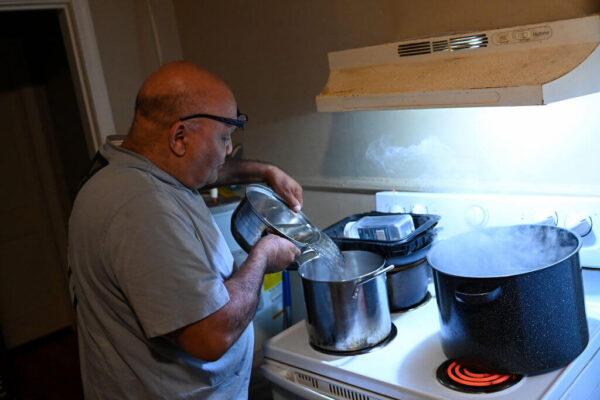Public health officials in Jackson, Mississippi, have lifted a boil-water advisory since tests came back positive for E. coli a week ago, marking the latest setback in a continuing saga of water mismanagement in the majority-Black capital.
The water authority issued the alert on Jan. 11, warning that water should be “boiled vigorously for 1 minute before it is consumed,” affecting more than 200,000 residents in the capital region, including Jackson, Byram and Flowood — where the majority of households are Black.
For years, civic activists have attributed the persistent water issues in Jackson to systemic neglect, accusing state officials of ignoring calls to step and help the beleaguered city upgrade its water system — a pattern identified as a form of environmental racism that disproportionately impacts communities of color.

Jackson’s ongoing water problems resemble those in Flint, Michigan, where majority-Black residents have faced more than a decade of water-related challenges, including an outbreak of Legionnaires disease and lead contamination from crumbling infrastructure and aging service pipes.
At the time of last week’s emergency, Jackson’s interim water manager, JXN Water, disputed the findings by the Mississippi State Department of Health, saying it was highly unusual that E. coli was found in more than one water system on the same day, while noting that chlorine in the treatment process should have easily eliminated the bacteria.
Despite doubts about the findings, the state health agency maintained confidence in the test results, asserting that the samples were never contaminated and defending its decision to issue the water advisory.
“In spite of the allegations made by the City of Jackson Water Supply, the Mississippi State Department of Health stands behind the initial test results that indicated the presence of E. coli in the City of Jackson’s surface water,” the state health department said in a statement, according to CNN. “Upon review, all evidence supports that these test results were true positives.”
Repeat samples were taken from six locations where the positive results were reported a day earlier, and all tested negative for the presence of E. coli, according to JXN, which is obligated to collect bacterial samples from 120 locations across Jackson’s surface water system every month.
Several more new samples were also taken in Flowood, where three cases of E. coli have been reported in the water system since 2003, while 29 cases of E. coli have been reported in Jackson’s water system during the same time.
Jackson faced a major water crisis in August 2022 when extreme rainfall caused a mechanical failure at the city’s main water treatment facility — which already had been running on backup pumps — leaving the region without usable water for several weeks as bottled water also dried up.
At the time, the city had already been under a boil-water notice since late July after the state identified a host of water-quality issues.


